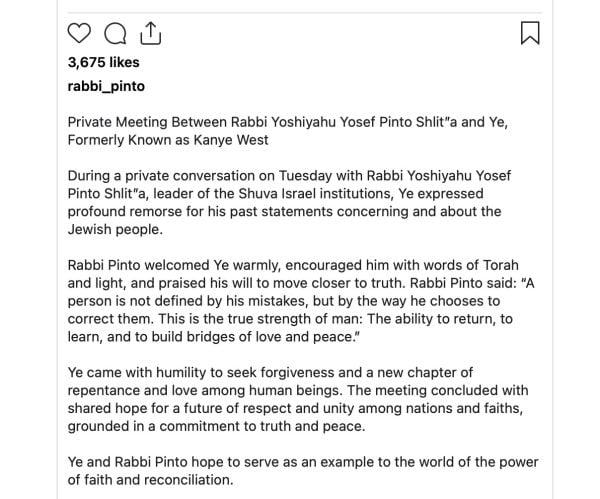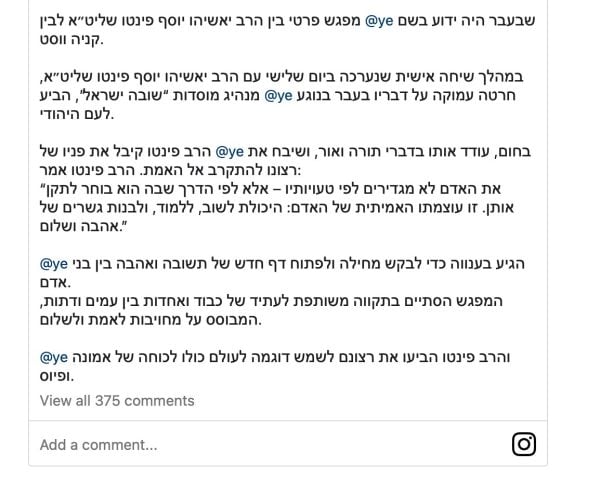Ye seems to be coming into a interval of reflection and accountability after holding a personal assembly with Rabbi Yoshiyahu Yosef Pinto. The rapper and designer, who has drawn widespread consideration for his previous remarks in regards to the Jewish neighborhood, expressed regret and a want to maneuver ahead with understanding and peace.
The assembly, shared by Rabbi Pinto on the Gram, confirmed the 2 partaking in a relaxed and heartfelt change. “An individual isn’t outlined by his errors however by how he chooses to rectify them,” the rabbi wrote. “This embodies true energy: The capability to return, be taught, and create connections of affection and peace.”
Try the interplay right here:
https://www.instagram.com/reels/DQuWmPMDGNI


Throughout their dialogue, Ye reportedly spoke with humility and gratitude, looking for forgiveness and emphasizing the significance of unity. The second ended on an uplifting notice, with each males agreeing that compassion and honesty are very important in rebuilding bridges and therapeutic previous wounds.
The motivation behind Ye’s latest efforts towards reconciliation isn’t completely clear, although it appears rooted in self-reflection. Earlier this yr, he publicly said that he was stepping away from antisemitic feedback, writing, “I’m performed with antisemitism. I really like all individuals. God forgive me for the ache I’ve precipitated. I forgive those that have precipitated me ache.”
Reviews counsel his shift in mindset started after a FaceTime dialog along with his kids and an sudden realization sparked by Jonah Hill’s efficiency in 21 Leap Avenue. Reflecting on that have, Ye stated, “Nobody ought to take anger towards one or two people and switch it into hatred in direction of thousands and thousands of harmless individuals.”
Whereas the complete scope of Ye’s transformation stays to be seen, his willingness to provoke dialogue and search therapeutic marks a significant transfer towards progress. For an artist who has at all times sparked deep conversations about religion, tradition, and accountability, this chapter could also be considered one of his most human but.




